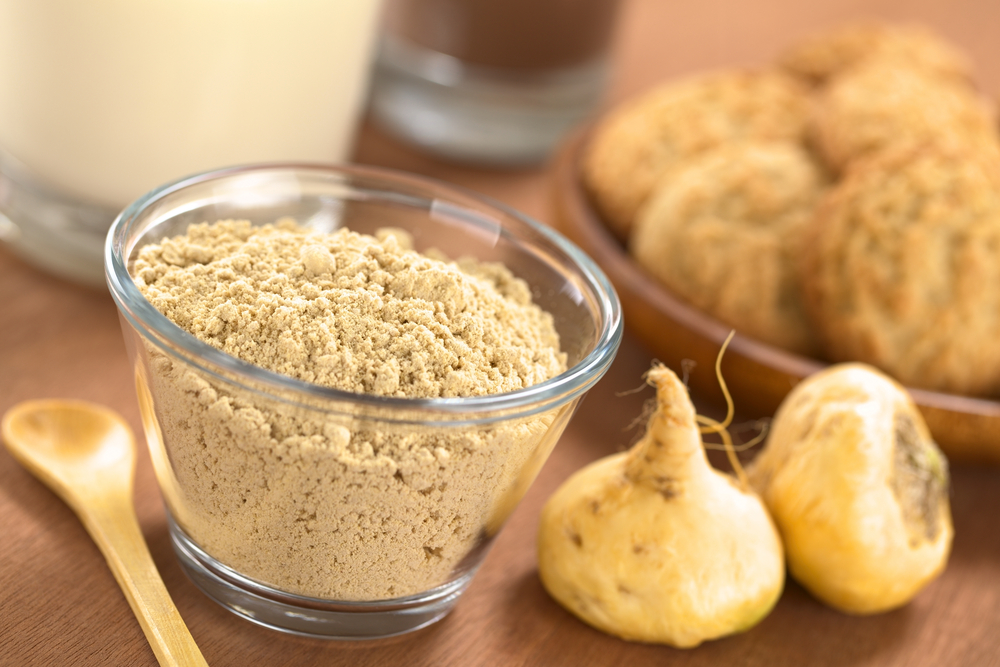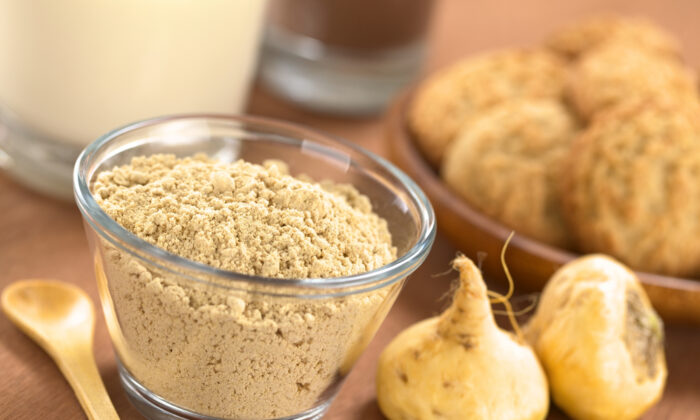
Maca root, also known as “Peruvian ginseng,” has a rich history in Latin America dating back over 2000 years. Indigenous people of the Peruvian Andes have long consumed maca for its nutritional benefits and believed effects on fertility and stamina. In recent times, maca has gained popularity as a supplement, but more research is needed to confirm its various health claims.
Prized as a Superfood
Maca belongs to the Brassicaceae (mustard) family of plants and is related to cauliflower, cabbage, and kale. Rich in protein, fiber, amino acids, minerals, vitamins, and antioxidants, maca is considered a nutritious staple food in the Peruvian highlands. Different colors of maca, such as yellow, red, and black, are believed to offer unique benefits, although more research is required to validate these claims.
Lowers Stress, Boosts Mood
Maca root is classified as an adaptogen, which helps the body adapt to stress and maintain balance. Studies have shown that maca may have a positive impact on reducing stress levels and improving resilience in animals. Limited human studies suggest potential benefits for reducing depression, anxiety, and sexual dysfunction in postmenopausal women.
Increases Libido, Enhances Fertility
One of the most commonly reported benefits of maca is its potential to boost libido in both men and women. While anecdotal evidence supports these claims, scientific research is limited and inconclusive. Studies on men with mild erectile dysfunction show mixed results, indicating the need for further investigation.
Balances Hormones
Maca is believed to support hormonal balance, particularly in women. While it does not increase testosterone levels in men, it may help regulate the endocrine system to maintain hormone balance.
Boosts Energy
Maca is often used for its energy-boosting properties, with some studies suggesting it can reduce fatigue and improve performance. Research has indicated that maca may have antioxidant properties that reduce oxidative stress and improve energy metabolism.
Any Risks?
Maca is generally considered safe with minimal adverse effects, although some individuals may experience gastrointestinal issues. It is important to follow recommended dosages, as high concentrations of maca extract could be harmful. Contaminants such as lead have been found in some maca supplements, emphasizing the importance of choosing products tested for purity by independent third parties.
In conclusion, while maca root shows promise for various health benefits, more research is needed to validate its effects. It is essential to consult with a healthcare provider before adding maca supplements to your routine, especially if you have specific health conditions or are pregnant or breastfeeding.
Source link





